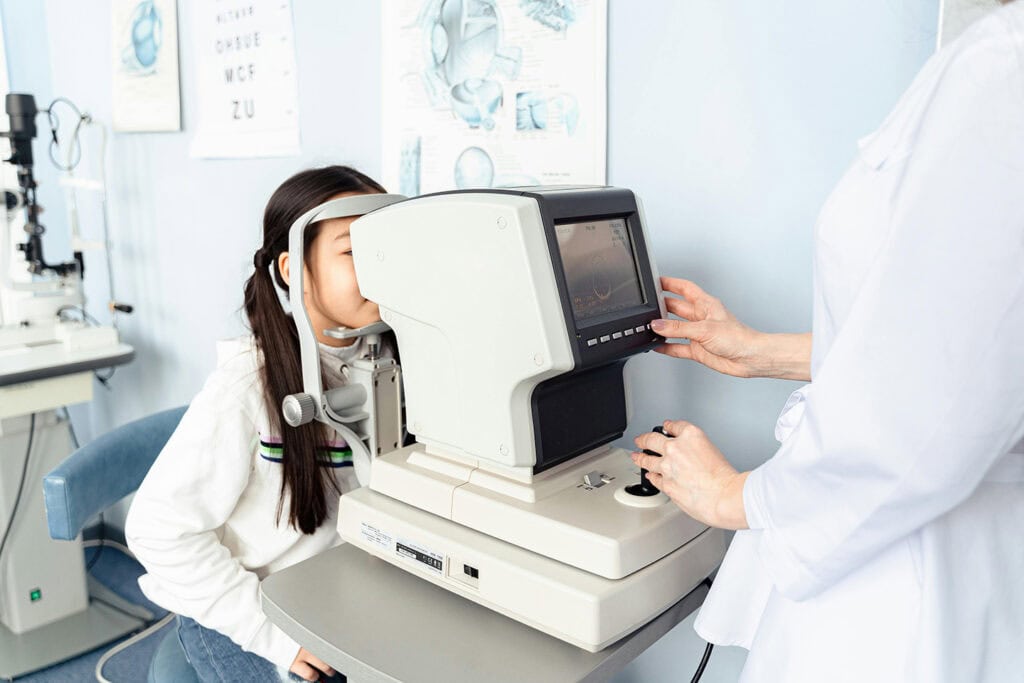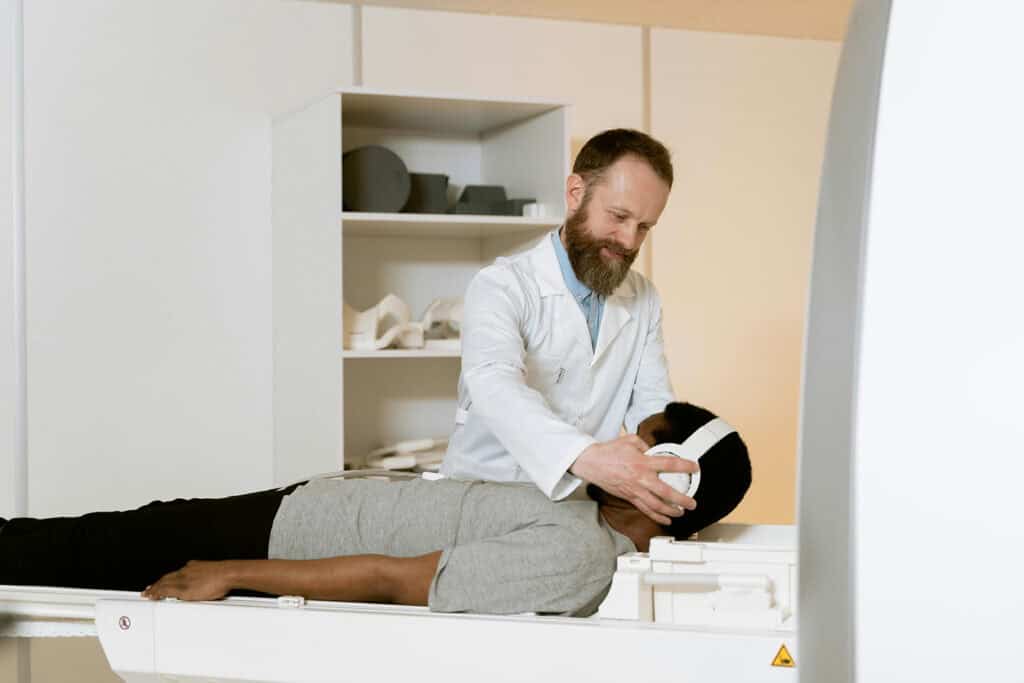
Are you taking care of your health as you should?
You are the hero of your own wellness journey, and we know that maintaining optimal health can sometimes feel overwhelming. You’re not alone in this—many face challenges in keeping track of their health and ensuring nothing is overlooked.
That’s where we come in. With years of experience, we’re here to guide you through your annual wellness exam with clarity and ease. We understand what matters most to you—your health and well-being.
In this article, we explore 21 key checklist items to ensure a thorough and effective annual exam.
By following these steps, you’ll ensure a smooth, thorough exam and take a proactive step toward better health.
Let’s get started today—by reading this guide, you’ll gain insights on how to stay ahead of your health and ensure long-term wellness!
- Why an Annual Exam is Important?
- 21 Items for a Complete Wellness Exam
- 1. Medical History Update
- 2. Vital Signs Check
- 3. Weight and BMI Assessment
- 4. Blood Tests
- 5. Vaccination Status
- 6. Physical Examination
- 7. Mental Health Assessment
- 8. Vision and Hearing Tests
- 9. Cancer Screenings
- 10. Chronic Conditions Review
- 11. Diet and Nutrition Counseling
- 12. Exercise and Fitness Advice
- 13. Lifestyle Habits
- 14. Bone Density Testing
- 15. Sexual and Reproductive Health
- 16. Medication Review
- 17. Sleep Habits
- 18. Advance Directives Discussion
- 19. Skin Cancer Screening
- 20. Dental and Oral Health Recommendations
- 21. Stress Management
- Preparing for Your Annual Exam
- What Happens After the Exam?
- Annual Wellness Exam Checklist: A Recap
Why an Annual Exam is Important?

An annual wellness exam is vital for maintaining good health. It helps identify risk factors early and tracks your overall health status. During the visit, your provider reviews your medical and family history.
They check blood pressure, assess cognitive function, and update immunization records. A physical exam ensures any concerns are addressed. Wellness visits also include health risk assessments to evaluate potential issues.
Regular visits allow patients and providers to create a proactive care plan. Reviewing medical history and current health ensures personalized advice. It’s also an opportunity to discuss wellness goals, such as a wellness vision board.
Staying consistent with annual wellness visits supports long-term health, reduces risks, and promotes a healthier lifestyle.
- Preventive Care: Vaccines and screenings reduce the risk of serious illnesses.
- Better Health Tracking: Regular exams track your progress and highlight changes.
- Customized Advice: Doctors offer personalized recommendations based on your health.
- Early Detection: Identifying problems early makes treatment more effective.
See also Vision Board 2025: 6 Categories for Goal Setting
21 Items for a Complete Wellness Exam
1. Medical History Update
Review past illnesses, surgeries, and family health history. Discuss any changes in medications or treatments. This provides your doctor with a full picture of your health and helps identify potential risks based on your history.
2. Vital Signs Check
Your doctor will record blood pressure, heart rate, respiratory rate, and temperature. These measurements are vital indicators of your overall health and can signal early signs of issues like hypertension or infections.
3. Weight and BMI Assessment
Your weight and Body Mass Index (BMI) are checked to monitor changes over time. Significant weight changes might indicate underlying health issues or the need for lifestyle adjustments.
4. Blood Tests
Blood tests provide valuable insights into your health. Common tests include complete blood count (CBC), lipid profiles, and glucose levels. These screenings detect issues like anemia, high cholesterol, or diabetes.
5. Vaccination Status
Your doctor ensures your immunizations are up to date. Depending on your age and risk factors, you may need boosters for vaccines like tetanus, flu, or COVID-19.
6. Physical Examination
The doctor checks your heart, lungs, abdomen, and skin for abnormalities. This exam helps detect potential problems like irregular heartbeats, lung issues, or skin conditions.
7. Mental Health Assessment
Your mental well-being is evaluated by discussing stress, anxiety, and depression. If needed, your doctor may recommend counseling or medications to support emotional health.
8. Vision and Hearing Tests
Vision and hearing screenings detect impairments that might not be obvious. These tests are especially crucial as you age or if you notice changes in these senses.
9. Cancer Screenings
Depending on your age, gender, and risks, screenings may include mammograms, Pap smears, prostate exams, or colonoscopies. Early detection increases the chance of successful treatment.
See also Diet Green Tea: 9 Refreshing Health Secrets
10. Chronic Conditions Review
For conditions like diabetes or hypertension, your doctor will evaluate how well they are managed. They may adjust treatments to better control symptoms or prevent complications.
11. Diet and Nutrition Counseling
Your eating habits and nutritional needs are reviewed. A balanced, good diet plan supports long-term health, and your doctor might suggest changes to meet specific goals or prevent deficiencies.
12. Exercise and Fitness Advice
Your activity levels are assessed to ensure they meet health guidelines. Regular exercise improves heart health, mental well-being, and overall fitness. Your doctor can recommend tailored activities.
13. Lifestyle Habits
Discuss habits like smoking, alcohol use, or drug intake. Addressing these factors can significantly improve health outcomes and reduce the risk of chronic illnesses.
14. Bone Density Testing
This test evaluates your risk of osteoporosis, especially if you’re older or post-menopausal. Early detection helps prevent fractures and bone loss through medication or lifestyle changes.
15. Sexual and Reproductive Health
Your doctor may discuss contraception, hormonal changes, or sexually transmitted diseases (STDs). This conversation ensures you stay informed and protected.
16. Medication Review
Bring a list of all prescriptions, over-the-counter drugs, and supplements. This ensures there are no harmful interactions and confirms all medications are necessary.
17. Sleep Habits
Sleep patterns and disorders like insomnia, snoring or apnea are addressed. Proper sleep is essential for physical and mental health, and your doctor may suggest solutions if issues arise.
18. Advance Directives Discussion
You may review living wills or healthcare directives. These documents ensure your wishes are honored in case of serious illness or emergency.
19. Skin Cancer Screening
The doctor checks for unusual moles or skin changes that could indicate skin cancer. Early detection can save lives and prevent severe complications.
20. Dental and Oral Health Recommendations
Your doctor might discuss oral hygiene and remind you to visit a dentist. Good oral health impacts digestion, heart health, and overall well-being.
21. Stress Management
Chronic stress affects your mental and physical health. Discuss how you manage stress. Your doctor can recommend relaxation techniques or therapy if needed.
Preparing for Your Annual Exam

- Bring a Health History: Note any changes in your health since your last visit.
- List Concerns: Write down symptoms or questions for your doctor.
- Track Medications: Create a list of prescriptions, vitamins, and supplements.
- Be Honest: Share lifestyle habits openly for better advice.
What Happens After the Exam?

After the exam, your doctor may:
- Share test results.
- Recommend follow-ups or referrals.
- Suggest lifestyle changes for improvement.
Regular check-ups ensure you stay on track with your health goals.
See also Project Management Checklist: 14 Critical Tasks to Manage Projects
Annual Wellness Exam Checklist: A Recap
An annual wellness exam is key to staying healthy. It helps identify health risks and create a plan for better well-being. During your annual wellness visit, your nurse practitioner or doctor reviews your medical history and family medical history.
They assess your current health status and risk factors. A physical exam checks your blood pressure, weight, and overall condition. A cognitive function test may spot early concerns. Immunization records ensure you’re up to date.
Risk assessments identify potential health threats. This checklist provides a complete view of your health. By addressing health risks early, you can stay on track toward better health. Regular visits build a proactive approach to wellness and long-term care.


